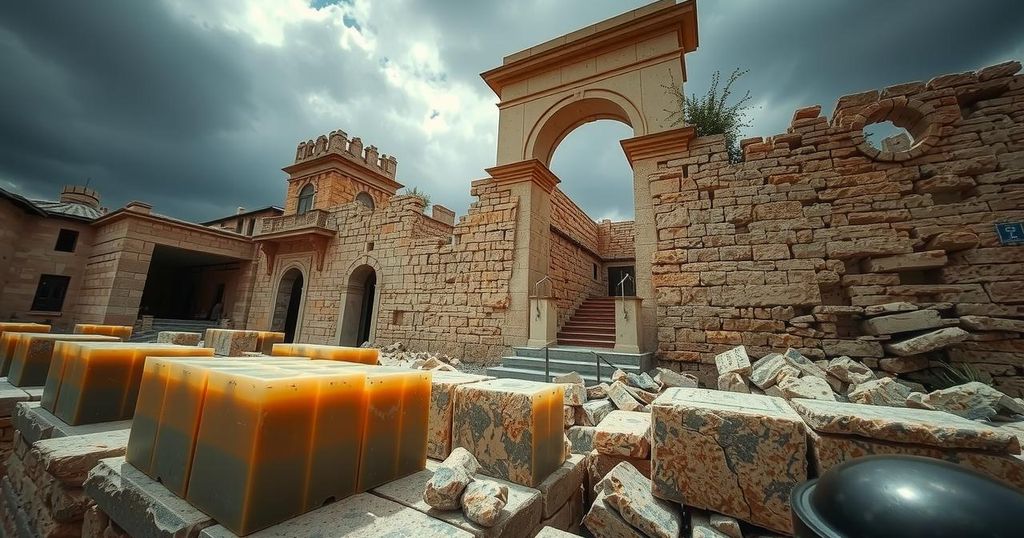UNESCO has officially recognized Aleppo soap as an item of intangible cultural heritage amid ongoing conflict in Syria. This acknowledgment highlights the artisanal soap-making tradition, which has persisted for over three millennia, despite significant reductions in production due to the civil war. The craft is key to community cohesion, emphasizing the cultural significance of Aleppo soap during a time of crisis.
On December 4, 2024, UNESCO designated Aleppo soap as part of its intangible cultural heritage, despite ongoing conflict in Syria. This recognition acknowledges the traditional craft of producing Aleppo soap, made from olive and laurel oil in the historically significant city. Over the past 3,000 years, artisans have utilized local and natural ingredients to create this cultural artifact. Although the number of soap factories has dwindled due to the war, the artisanal production remains vital for the local community, fostering unity and collaboration among families. UNESCO reiterated the importance of this heritage, following the city’s previous designation as a World Heritage Site and its current listing on the endangered sites list.
The craft of producing Aleppo soap, which dates back to ancient times, exemplifies the rich cultural practices of Syria, especially in the context of the civil war. Aleppo has a long history as a center for soap-making, with methods that encompass unique traditional knowledge. The recent designation by UNESCO aims to preserve such cultural practices amidst ongoing challenges faced by the city due to conflict. This recognition also highlights the broader implications of war on cultural heritage, showcasing the resilience of local traditions despite adversity.
The inclusion of Aleppo soap in UNESCO’s intangible cultural heritage list serves not only to honor the traditional craft but also to underscore the importance of cultural preservation during times of conflict. As Aleppo continues to endure the repercussions of war, such recognitions can play a crucial role in maintaining community identity and solidarity among its people.
Original Source: jordantimes.com






